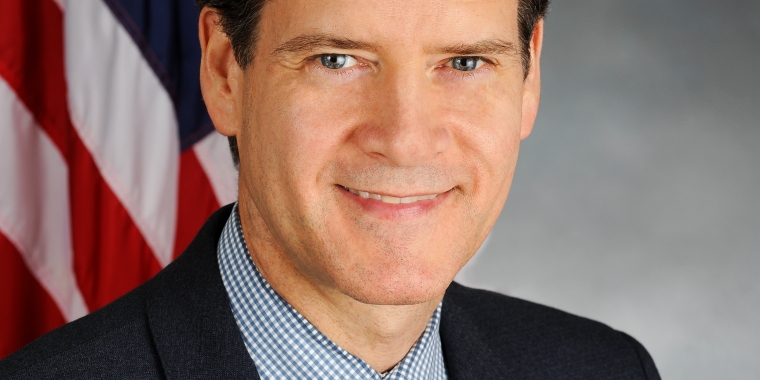
Seeking Answers, Nine Years Later

For nine years, Ryan Casey has been trying to figure out how he fell out of a fifth-floor window in Chelsea and nearly died. Now, a state senator has stepped forward to help him get some answers from the NYPD.
The effort by Manhattan Sen. Brad Hoylman comes in response to a first-person story Casey wrote for this newspaper in November about what happened on Nov. 12, 2006. That night, Casey, then 18 years old, went to a party with friends, then left for a nearby apartment along with a man he didn't know. Casey's next memory was of waking up at St. Vincent's Hospital two weeks later, with injuries so extensive that he was placed in a medically induced coma for several days.
The police report at the time quoted the man he was with saying he had jumped out of the window, and his parents were told the same thing. Casey writes in his piece:
The police tell my family what happened. My brother shows the police a business card of an established lawyer based in Manhattan. The police tell my brother and father, “It's better if you leave this alone.” The police mutter the words mafia to my father. My mother says, “People don't just crawl out five-story windows.” The police tell my mother, “This is what happens to young men in Chelsea who go off and find themselves.” -
Casey, now an actor and model in the city, has spent recent years doubting, to himself, the official version of events. The notion that he intentionally jumped, he wrote, doesn't make sense, raising the very scary notion that he could have been pushed.
Here's what I know: I was far from suicidal at this moment in my life. As I said, I had just started to identify as a gay man and was exploring New York City after leaving the only town I had ever known. The last thing I wanted to do this night was die.
Beginning in the weeks immediately after the fall, Casey has fought the NYPD to get information about his own case. The only copies of the police report he has seen, for instance, blacked out the name of the man he was with, and Casey was told in his initial visits to Chelsea's 10th Precinct that there wasn't much that could be done to help him. “They said it's your word against his,” he said in an interview this week. “I didn't pursue it after that.”
In August of last year, after he had to go back to the hospital to have pins removed from his leg as a result of the fall, he began working again to piece together what happened that night, and once again was rebuffed by the NYPD. He filed a Freedom of Information Law request for the full police report, a request that was denied. He appealed that decision, and was told that he would receive a response to the appeal by the end of November.
It was at this point that he connected with Hoylman, who had read Casey's initial essay in this newspaper. Hoylman approached the NYPD, in hopes of prodding the department to respond to the appeal.
In February -- two and a half months after Casey had been promised a response to his appeal -- Hoylman sent a letter to Police Commissioner Bill Bratton, asking that he intervene to get Casey the information he wanted. Finally, two weeks later, Casey was sent the information he had been seeking for years.
Hoylman, in an interview, said he was moved by Casey's story, prompting him to want to help.
“I thought his story was interesting because it mirrors a lot of young LGBT people. They come to New York to find a new life,” Hoylman said. “I wasn't too different in my youth.”
But Hoylman also acknowledged that Casey's case points to systemic problems within the NYPD when it comes to access to information, particularly when the request is coming from crime victims themselves. “Should you have to hire an attorney and go to your state senator to get records about an incident where you presumably were the victim?” Hoylman said he is looking at regulatory or legislative changes that would make it easier for victims to gain access to their own case files.
Casey is skeptical. Time and again, he said, the police were dismissive of his efforts for more information, or were so mired in bureaucracy as to be unhelpful; one of the people at the department he had repeatedly emailed about his case wrote that the information wouldn't be turned over because Casey, the victim, was dead. “They just sort of ghosted us and never engaged again,” he said. “If it had not been for Brad stepping in, they would never have taken me seriously.”
As for the records themselves, Casey said they don't shed any significant new light on his case. He does now know the name of the man whose apartment he was in (the man has since moved away) but he hasn't been able to contact him, and doesn't know if he will.
Nor has he made a decision about whether he will ask that the case be officially reopened, which would mean a new police investigation into what happened. ”It's essentially where I left off,” he said. “It's this person's word against mine. At this point, it is what it is.”
And what about the possibility of new legislation, to ensure that crime victims won't have the same kinds of battles with police for access to their own case? “I'm a white middle-clss male, and even I had this runaround. I would like to be more hopeful.”
- See more at: http://www.chelseanewsny.com/local-news/20160323/seeking-answers-nine-years-later#sthash.UN998ujY.dpuf